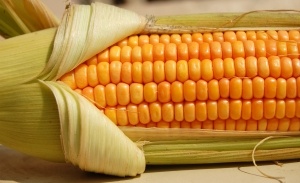 Just recently, the Corn Refiners Association took the legal steps necessary to change the name high fructose corn syrup (HFCS) to the more innocuous name, “corn sugar.”
Just recently, the Corn Refiners Association took the legal steps necessary to change the name high fructose corn syrup (HFCS) to the more innocuous name, “corn sugar.”
While the approval could take as long as two years, products are already being referred to as containing corn sugar, rather than HFCS.
For those who are a bit confused over the name change, you’re not alone. Corn sugar is just another name and form of sugar, and just like sucrose, HFCS, or dextrose, it can be added into candy, pasta sauce, soda, bread and thousands of other processed products.
So, exactly what is corn sugar and how does it fare in comparison to the now demonized high fructose corn syrup?
While the name may sound fairly natural, corn sugar is a sweetener whereby the starch (sugar) has been extracted from the corn kernel. The starch is then put through a number of other refining processes, which transforms it into a solid sugar or it can be refined even further and turned into a liquid sugar known as corn syrup.
Corn syrup provides the basis for high fructose corn syrup, which goes through even more processing methods, such as the addition of certain enzymes, which alter its structure and taste, making it much sweeter and concentrated than just regular sugar. High fructose corn syrup has been strongly associated with obesity and being overweight because of the types of food, namely processed, nutrient-less and insulin-spiking foods, that it is most commonly found in.
When it comes to taste, corn sugar is not nearly as sweet as high fructose corn syrup or even granulated sugar. In fact, it is just about half the sweetness of regular table sugar, but since it is a larger form of sugar, it is often used to add bulk to recipes. If you’re watching your sugar intake and don’t want to use artificial sweeteners, corn sugar might be a less sweet baking alternative.
There is also a bit of evidence to suggest that corn sugar is more readily digestible than sugar made from sugar cane, but this in no way means that it offers any more nutritional benefits than sugar or high fructose corn syrup. Any foods high in sugar are likely to cause a jump in blood sugar levels and may even cause you to crave more of the sweet stuff. Any way you eat it, whether it’s powdered sugar, white granulated sugar, corn sugar or high fructose corn syrup, it is still an empty source of calories offering no nutritional value other than a slight lift in energy.
The take-home message is not just to read the ingredient list of packaged foods, but to read in between the lines of what is in your favorite brand of cookies, crackers or salad dressing. Sugar is sugar, and it isn’t good for you, even if you process it until it is unrecognizable.
Also Read:
